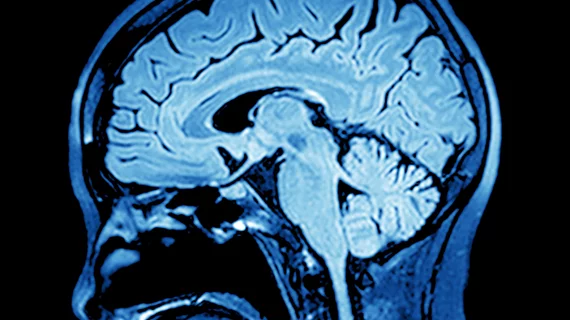No gadolinium, no problem: Specialists can monitor MS patients with unenhanced MRI
Gadolinium-based contrast agents (GBCAs) are typically administered during follow-up imaging of multiple sclerosis (MS) patients. According to new research published in Radiology, however, unenhanced MRI scans are sufficient.
Controversy over GBCAs in recent years due to potential gadolinium retention—and the fact that enhanced scans take longer and increase costs—led the research team to look into if the GBCA was necessary in this instance.
“These factors warrant evaluation of strategies for reducing or omitting contrast agent, especially in MS patients who often accumulate a high number of MRI scans over their lifetimes,” senior author Benedikt Wiestler, MD, of Technische Universität München in Munich, Germany, said in a prepared statement.
The authors used brain MRI scans for more than 500 follow-up scans of new or enlarged lesions in MS patients. A 3T MRI scanner was used for all scans, and the team was able to compare enhanced results with unenhanced results. Both 3D MRI and subtraction maps were used to significantly improve the visualization achieved with unenhanced MRI.
Overall, Wiestler et al. noted that there was no change in the diagnosis of these MS patients as a result of using the GBCA.
“In over 500 follow-up scans, we missed only four of 1,992 new or enlarged lesions,” Wiestler said in the same statement. “Importantly, we did not miss disease activity in the non-enhanced scans in a single follow-up scan.”

